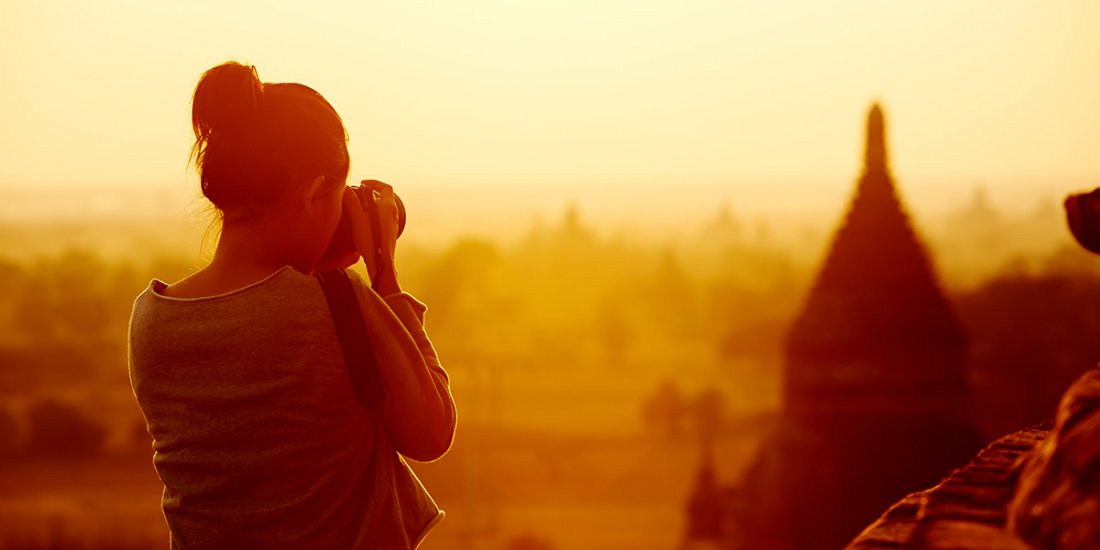8 Smart Safety Tips for Women Travelling Abroad

Let's go girls! There's no doubt that women are avid travellers, and for the right reasons. While more men tend to travel overseas for business, women mostly travel for leisure and enjoyment, says the ABS.
A TripAdvisor survey released earlier this year also revealed that women are becoming more and more independent when it comes to travel;
Yet accompanying the idea of solo holidays, which can boost traits like confidence, self-reliance and freedom, is also the importance of safety for women while travelling.
Whether you choose to travel alone, with a friend or partner or even in a group, safety should be paramount no matter where you go.
1. Research & Choose a Reputable Hotel
- Your hotel is your home base so it needs to be safe in terms of location and security. Conduct thorough research and read reviews by other travellers before you make a booking.
- Choosing a hotel in safe, busy and well-lit streets is best. Avoid choosing hotels that may put you in a ground-floor room. Women can also consider 'women only' hotels for additional safety.
- Other things to look out for include rooms with electronic locks and deadbolts, peepholes in doors, in-room telephones, well-manned reception desks (ideally 24-hour) and inbuilt safes.
- If you arrive at your hotel or enter your room and don't feel it's safe, don't hesitate to go somewhere else.
2. Before You Go, Register Your Plans
- Registering your plans with
Smartraveller.gov.au is recommended for any type of holiday, whether solo or with somebody else. If something happens to you overseas, this will make it easier to find out where you are. - To register, you'll need to enter your passport details as well as the details of your itinerary, including flights and hotels, and details of your emergency contact person/s. You can register here: https://orao.dfat.gov.au/
- It's also essential to check travel advice for each region you will be visiting. This will tell you the level of risk you may be facing and can help you decide whether or not to travel to certain destinations based on safety warnings.
3. Once Your Trip Is Booked, Organise Travel Insurance
- Smartraveller considers travel insurance a vital part of every trip. Travel insurance covers the cost of things like injury, illness, medical treatments, delayed travel, lost or delayed baggage and more.
- Travel insurance can also make sure that you receive the best care possible if something happens to you overseas. Without it, you may only receive limited help if something unfortunate happens.
- Female travellers should ensure they select a travel insurance package that will cover all the needs of their trip. Don't leave anything to chance.For more guidance on how to choose travel insurance, visit the CHOICE guide here.
4. While Away, Avoid Late Nights & Dark Streets
- Dark, unpopulated streets can be dangerous for female travellers, especially when solo. When making your way to/from your hotel (or anywhere else), take the most populated and well-lit route, even if it's not the most direct.
- If you don't feel confident walking home alone, call your hotel and ask them to organise a taxi for you.
- Try not to stay out too late since incidences of crime can also increase after dark.
5. If You Plan to Drink, Be Smart About It
- Being intoxicated can place you in significant danger, particularly when travelling alone. For women, this can mean anything, from theft to a violent attack.
- If you do decide to drink while on holidays, do so in moderation, keep tabs on how much you've had and know your limits. Balancing 1 alcoholic drink with 1-2 glasses of water (or non-alcoholic drinks) can be helpful.
- Do not let strangers buy you a drink, even if you feel you are in a reputable bar or venue.
- You should also be wary of spiking. Aim to keep your drink in your hand at all times and/or keep your drink covered, and keep a close eye on it, especially in crowded venues. Also, never, ever leave your drink with a stranger.
6. Be Culturally 'Street Smart' When Travelling
- Do your research on local laws and customs and pay attention to what could go wrong or what could place you at risk in your specific destination.
- Understanding local customs can also help keep you out of trouble or stop you from offending someone unintentionally.
7.Consider Organised Tours In Some Regions
- Tours can be excellent ways to both explore your destination and remain safe. This can be especially useful in countries where women might be at risk or even harassed when travelling alone.
- Remember to book your tours through reliable and trustworthy carriers. If in doubt, your hotel may be able to recommend or organise something for you.
8. Be Prepared for (Big and Small) Emergencies
- Keeping your phone with you at all times is a good idea.
- Carry important phone numbers with you (police, hospital, embassy, travel insurance etc.) and make sure you know where the nearest points of help are located.
- Consider what you might also do if you lose your phone or if your cash, cards or even Passport goes astray. Could you leave some cards or cash in a safe in your hotel? Have you left a copy of your Passport and itinerary with someone you trust at home?
- Carry the address and telephone number of your hotel around with you. If you struggle with language barriers, this can be invaluable. It will also help keep you safe if you happen to get lost.
- Scheduling regular 'check-ins' with family and friends is recommended too, and it also means they can take action if they don't hear from you.

Editorial Team

